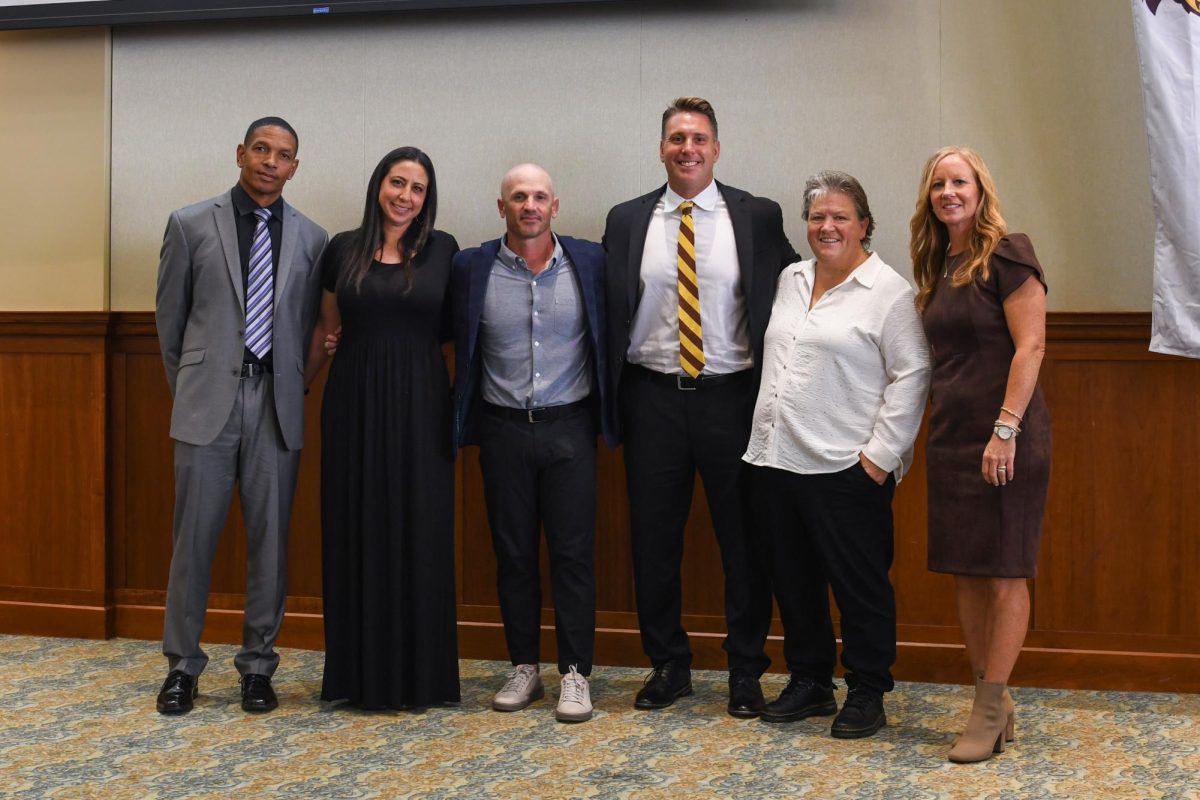We’ve all heard the claim that students studying science, technology, engineering or math fields (STEM) are either smarter or harder workers.
There’s this idea that a STEM degree is more important because it will supposedly accrue its owner more money. Capitalism would have us believe that income is a function of hard work and talent, and thus to have a lower income is due to some personal deficiency.
What follows, then, is the idea that not choosing to pursue a career in science is due to that same deficiency, and that a degree in the humanities is a consolation prize.
This is likely the advice lots of parents are giving their kids as they decide their college majors: that they’ll make lots of money in science because science is “necessary” – writing and history and art and communications are not.
But is this a fair or accurate way of thinking of either discipline?
There is some truth to the idea that STEM majors have to do more, at least in terms of scheduled class time. A standard four-credit lab science course requires two lecture and two lab periods scheduled each week. This translates to a minimum of five hours scheduled each week for one class; meanwhile, a three-credit lecture course standard for every other discipline is only scheduled to meet twice a week, for 2.5 hours total.
Overall, this means that a student taking the minimum full-time course load of twelve credits would either have to be in class 15 hours a week if taking three lab courses, or ten hours a week if taking four non-lab courses. Overall, a STEM student could be taking “fewer” courses, but per credit, it translates to a third more of formal time commitment.
But scheduled class time shouldn’t be the most substantial way to measure overall difficulty of a course load.
STEM doesn’t have to be strenuous. The nuances of statics and statistics may be elusive when taught in certain ways, but they are concept-based. Once a student learns how to take a confidence interval, they can do so correctly every single time and with relatively little time needed.
For example, 20 physics problems could take 20 minutes total when completed by a student who understands the equations and material. Even the most frustrating problems can be solved with repeated trial and error until the correct concept is grasped.
However, an English major will rarely be asked to prove their understanding of the material by providing simple multiple choice or fill-in-the-blank answers. They will more likely be asked to write an essay with original thoughts: a skill so undervalued that engineers at Rowan University are not even required to take Comp II.
But higher-level abstract thinking, whether it be about classic literature or the Civil War, is labor.
It is pure labor to have to read a whole novel every week, and to then write five pages about that novel every week. It is labor to cite every source in MLA format. It is labor to have to perform this a minimum of four times a week, every week, for a student taking the minimum full-time course load.
It is labor in a way that answering online math problems just isn’t.
These generative tasks are laborious and often labeled as “female” subjects, and too often go unnoticed and unappreciated. And it is this perception, rather than any form of reality, that makes us believe that STEM is more difficult.
Filling out lab reports is difficult labor, too. But why does our society seem to value the time needed to fill out one lab report, more than it values the time needed to write a twenty-page essay on Shakespeare? Is it actually because of a difference in intelligence needed to complete either task?
In an ideal world, both math and writing would be taught in ways that all students could understand. We would see them as they truly are: not markers of ability, but tools with which to solve problems.
After all, most of the world’s most pressing issues can only be solved with a complete synergy of empathy, understanding of social convention, analysis of complex political processes, comprehension of physical phenomena and by applying engineering solutions.
Without the humanities, our world would be both boring and cruel. Without science, our world would be confusing and dark. Hopefully, we can move towards a place where both disciplines are given the respect they deserve.
For comments/questions about this story, email [email protected] or tweet @TheWhitOnline.





































































































































































































BH • Oct 27, 2021 at 4:25 am
I am currently a biology major. Even as STEM majors we are required to take fine arts courses (humanities, comp 1 and 2, history etc.) What makes STEM harder than other majors is:
1) The material is much harder to teach. Professors can understand the material well and that’s great. But having the ability to teach that material to students is a very different skill. Unfortunately, STEM professors often have a hard time teaching the material on a basis that an undergraduate student can understand it.
2) Time spent studying. It has been studied, quantitatively, that STEM classes require 18+ hours a week of prepping (upwards of 22+ for some STEM majors such as architecture) while humanities and business majors have to study much less, about 8 to 9 hours a week.
3) Competition. The STEM field is HIGHLY competitive. You are consistently competing everyone around you in STEM to get an edge. Whether that is doing an internship, volunteering etc. I see much less of this in fine arts majors. I have witnessed, based on my own experience as well as watching others, being invited by various other majors out to parties (business, humanities and arts majors) while the STEM majors have to pass up ALMOST every time because we have other commitments. Maybe not just the study time for those classes but maybe you have an internship at a lab that is taking up that time and you have to post results.
In conclusion, STEM majors know what its like to take classes as a fine arts major since we are required to take it for our AA degrees. But fine arts majors have a very difficult time wrapping their mind around how much studying an actual STEM class takes (cellular biology, chemistry, architecture).
Jake • Nov 25, 2020 at 1:19 am
As a STEM-humanities double major, this was an incredibly ill-informed take. You demonstrated a clear misunderstanding of the differences between STEM and the humanities and used reductionist arguments to try to make a poor case.
AK • Sep 26, 2019 at 10:34 pm
Hi Whit Staff,
Just wanted to let you know that engineers do take Comp 2, but it is considered part of their clinic class. Essentially it is an engineering/technical writing/science writing geared Comp 2. Actually, writing and communication is stressed in engineering, specifically in these sophomore clinic classes. I hope this helps.
Tara Lonsdorf • Sep 28, 2019 at 4:54 pm
Hello AK,
Writing and communication are stressed in every discipline, including those in STEM. I understand that writing is a part of Comp II. However, other majors have to take Comp II and also learn those communication skills targeted towards their majors. Why don’t other majors have that kind of program built in if Comp II isn’t necessary to engineers?
Hope this cleared up the position taken in this editorial.
Best,
Tara